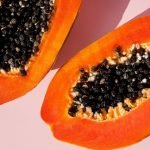
Let’s Catch the Pulse of Pulses!
Rich in protein, carbohydrates, dietary fibre and other bioactive components, pulses have numerous nutritional and physiological benefits. They are dried legumes that comprisedifferent varieties such as black grams, horse gram, beans, lentils, green gram, etc. Pulses are an important part of the Indian staple diet, which helps in meeting our daily protein and dietary fibre requirement. Phytochemicals such as phytates, lectins, tannins, phenolic, flavonoids, saponins, oxalates, antimicrobial peptides and phytosterols have some best-known health benefits as they are anti-cancer, anti-microbial, anti-inflammatory and anti-ulcerative. Vitamins and minerals such as folate, thiamine, riboflavin, and niacin, potassium, calcium, magnesium, phosphorus and iron are found in abundance in pulses.
Urad Dal
The main ingredient in the queen of dal- dal makhani, Urad Dal is classified into two varieties of black dal when it’s whole and white if its split and skinned. It is a versatile dal and is used in gastronomy delights like papad, dosa, vada, etc. is a great source of protein and helps in improving digestion. It is considered good for people with high cholesterol.
Masoor Dal
Good source of protein, amino acids, iron, fibre, potassium and vitamin B1, Masoor is one of the most commonly consumed pulses in Indian households. It helps in controlling excess sugar levels and cholesterol. You will also find it as an important ingredient in various regional dishes.
Lobia
Also known as black eyed pea because of the little spot on it, lobia is a highly cultivated pulse in Asia. Apart from India, it is widely used in other south-east Asian countries in various desserts and dishes. With ample protein and fiber, it helps in weight loss and also controls fluctuation of cholesterol level.
Horsegram
This underestimated legume is packed with health benefits. It has a great quality of calcium present in it along with some protein. It has a comparatively higher amount of carbohydrate present.
Arhar Dal Pigeon Pea or arhar dal is one of the beloved ingredients used in an Indian kitchen. It contains iron, magnesium, calcium, folic acid, Vitamin B and potassium. With right amount of fibre, regular eating of legumes can be a part of a healthy diet plan as it lowers the risk of heart disease, stroke and diabetes.






